Zak Brown: 'McLaren on track to winning championships again'
The CEO of McLaren Racing Zak Brown means business and he’s put together the personnel to get results. He speaks to Damien Smith about closing the gap on the big two
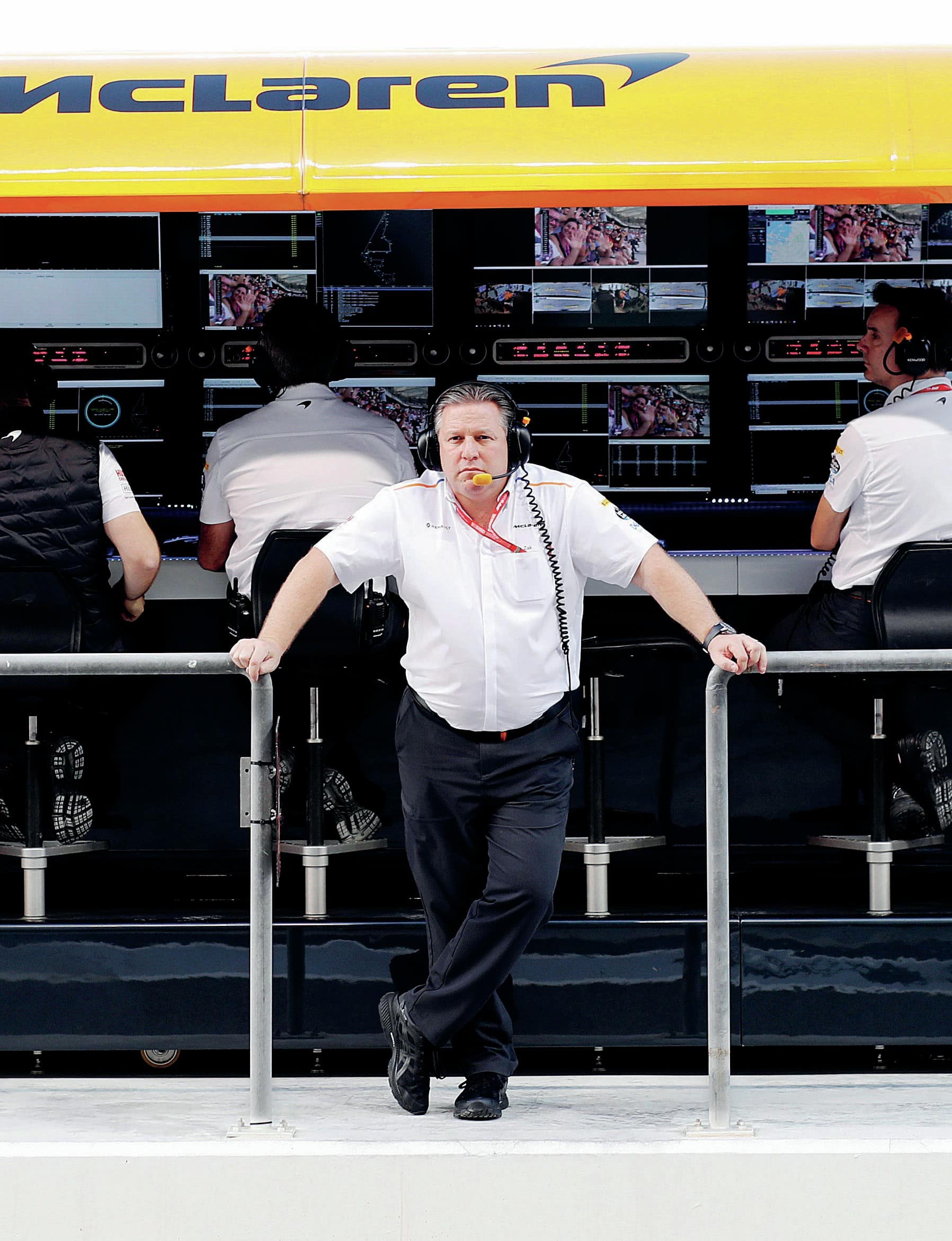
The potency of a Mercedes power unit, the sublime talents of Daniel Ricciardo, the leveller of a budget cost cap: is the dormant Formula 1 ‘big beast’ that was once McLaren about to be roused to roam once more? In a year of relative rules stability in the last season before a big regulation shake-up, the Woking team remains sensibly anchored to reality.
Nevertheless, when Motor Sport caught up with McLaren Racing CEO Zak Brown a week after the wraps came off the 2021 MCL35M, the American’s palpable sense of optimism shone a light that this proud organisation can at least now see a negotiable route back to the front, step by careful step. Brown is too long in the tooth to get overly excited by the hard-earned third place his team achieved in the constructors’ ranks last term, but in this frank interview he reveals a clear vision for both McLaren and F1. Always and unapologetically a fierce commercial animal, the 49-year-old is also imbued with a genuine, intuitive and deeply competitive racing spirit. It’s a potentially powerful and influential combination.
Motor Sport: Zak, Daniel Ricciardo joins Lando Norris this year. What impact is he already making?
Zak Brown: “Obviously it’s early days, but he’s a bundle of energy. The general vibe in the factory is we have an awesome line-up of youth and experience, a potential grand prix winner – and a proven [seven-time] grand prix winner. Everyone is enjoying working with him.”
Ricciardo’s got an eye on taking one of your historic racing cars off your hands, hasn’t he?
ZB: “I wonder which one! I might rather have a tattoo than lose one of those. Then again, I’m desperate for a win, so if he catches me at the right moment… He wants to have a go in my Dale [Earnhardt] Sr car, because he’s a huge fan. [Ricciardo’s race number, 3, was chosen in honour of the late, great NASCAR legend]. At a minimum, I’ll let him have a run as long as he brings it back in one piece.”
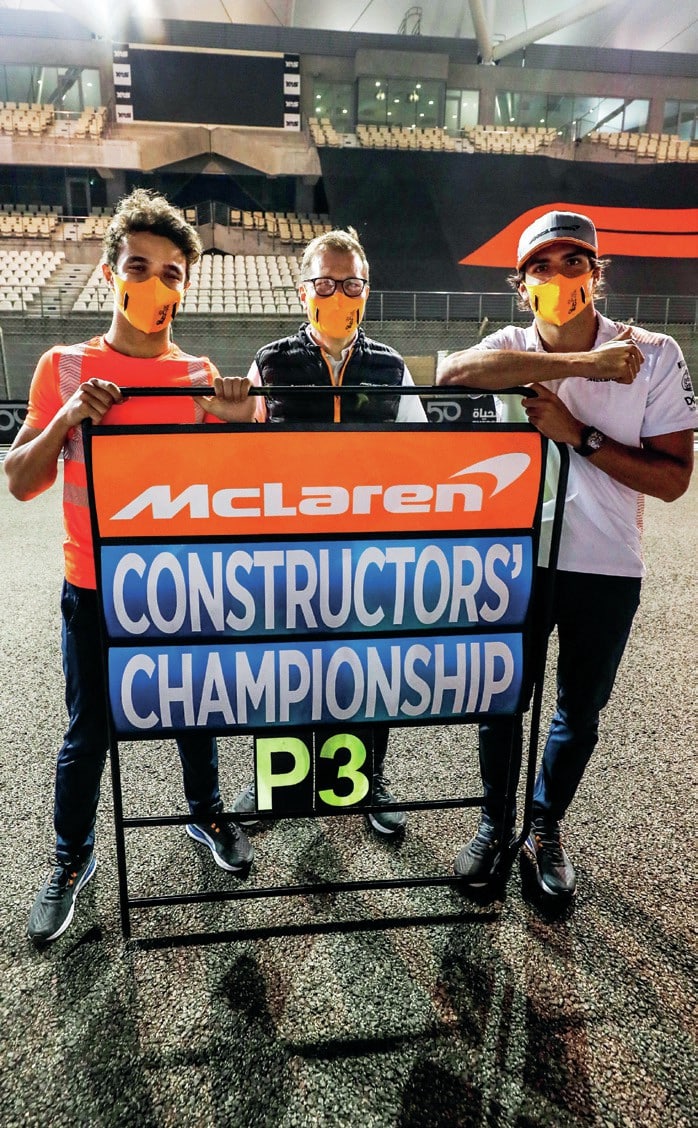
Third in the constructors’ championship for McLaren in 2020. From left, Lando Norris, Andreas Seidl and Carlos Sainz
You were highly critical of Racing Point last year over its car’s similarity to the 2019 Mercedes. Now you have the same engine, do you remain determined that McLaren should continue to go its own way and remain independent in its own approach?
ZB: “Copying someone else’s car is probably a good way to get competitive quickly, but if your aspirations are to beat [Mercedes] then copying them… you’re not going to beat them [that way]. Because our aspirations are ultimately to win the world championship, the only way to do that is not to be as good as the competition, but to figure out where you are going to be better. The real issue I had with Racing Point was that I don’t think what they did was in the spirit of the agreement, and in terms of their brake ducts they did not conform to the regulations, so that was illegal – hence the penalty [Racing Point was docked 15 points mid-season, which made the difference in McLaren finishing above the team in the 2020 standings]. “It would be one thing if they just copied the car, but clearly I think they crossed the line, as did the stewards. So that’s the real problem I had with it.”
Do you feel you are on the right path to achieve that championship ambition?
ZB: “Yeah, I think we are, but I think we are half-way there. Last year statistically we were the fourth-quickest qualifying team, fifth-best race team, but we finished third because we executed [well] and our drivers did a great job. We’re under no illusion that third, fourth, fifth, sixth is where we are going to play this year. Last year we went into Abu Dhabi and could very easily have been fifth. The reality is while we think the Mercedes power unit [in place of Renault’s] is an upgrade, we are also at a bit of a disadvantage in that we had to use our [FIA-awarded development] tokens for that, where others have been able to put theirs towards pure development. So I think net, it might wash itself out. It’s early days. We need to learn about the power unit and I think this year will look a lot like last year. I’d expect Mercedes to win, then I think that third to sixth and seventh is going to be one hell of a fight and you can land anywhere within there. Ferrari will be stronger. I don’t think [Fernando] Alonso has lost his touch at all, so [Alpine] is very strong. AlphaTauri showed great speed and won a race last year. I think it’s anyone’s fight.”
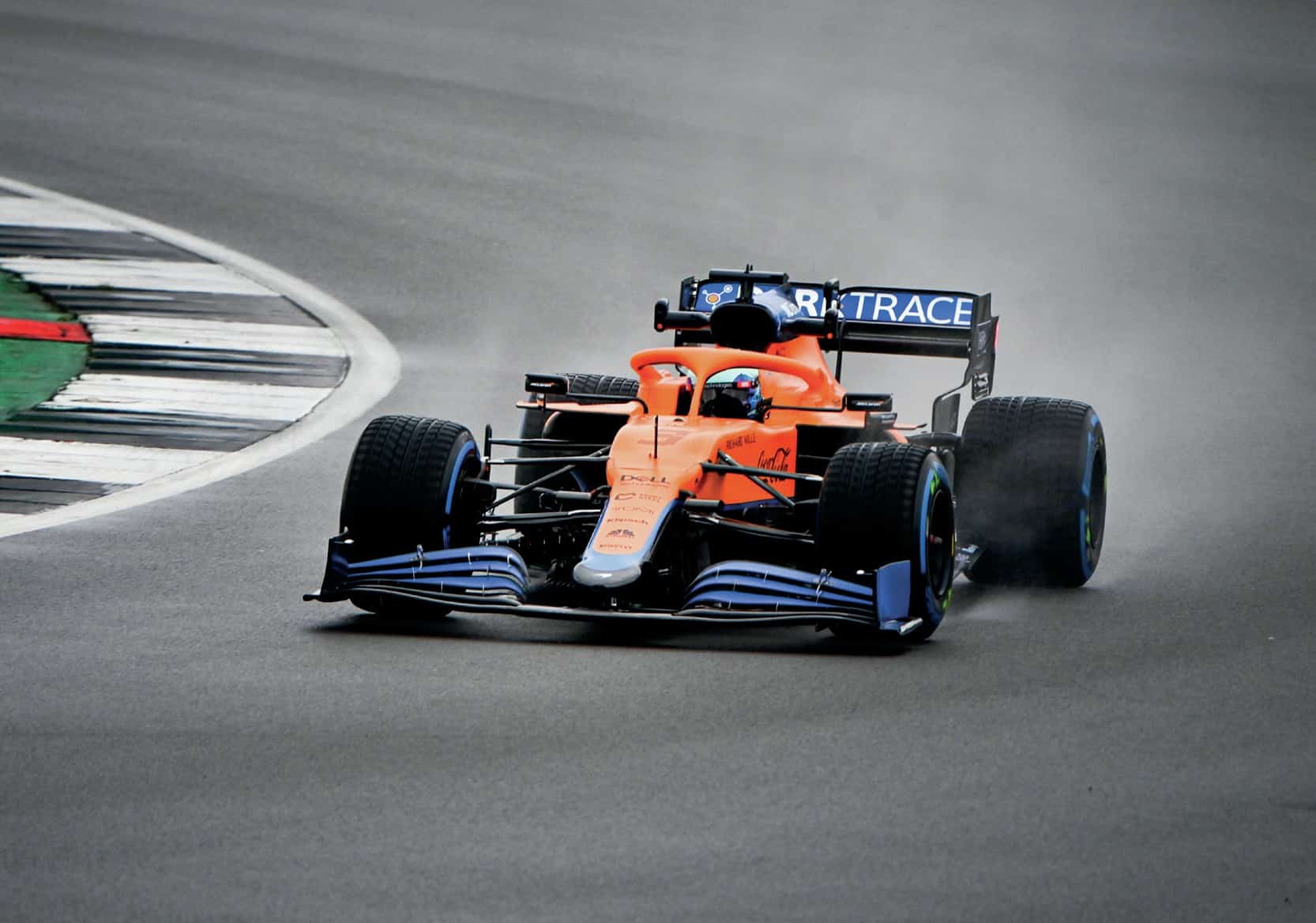
New recruit Daniel Ricciardo familiarises himself with the McLaren MCL35M
What has impressed you about Andreas Seidl since he joined as team principal?
ZB: “A lot – including his leadership, which I wasn’t anticipating. He delegates, gives very clear direction and is not a micro-manager. He’s into the details but he creates a team atmosphere and empowers his people. He expects them to deliver, but he gives them the room and the space to go, ‘That’s your job.’ He’s as professional and disciplined as you would expect and very highly respected. He’s done an outstanding job.”
He sounds a bit like Ross Brawn in that he knows how to get the best out of people.
ZB: “Hundred per cent. He works his team hard, giving them clear leadership and goals. He creates a ‘we win together, we lose together’ no-blame culture. [Brown then offers a hint of how a new openness in the technical ranks is having a direct benefit, from a race last year] Something was wrong on the car and maybe a few years ago no one would have popped their head up. We would have just gone through the weekend and not had a result. In this situation, we figured out we had made a mistake, got a plane ready, got some new bits and ended up having a strong race weekend. That’s something I can point to where there was a direct culture shift that resulted in better performance because of it.”
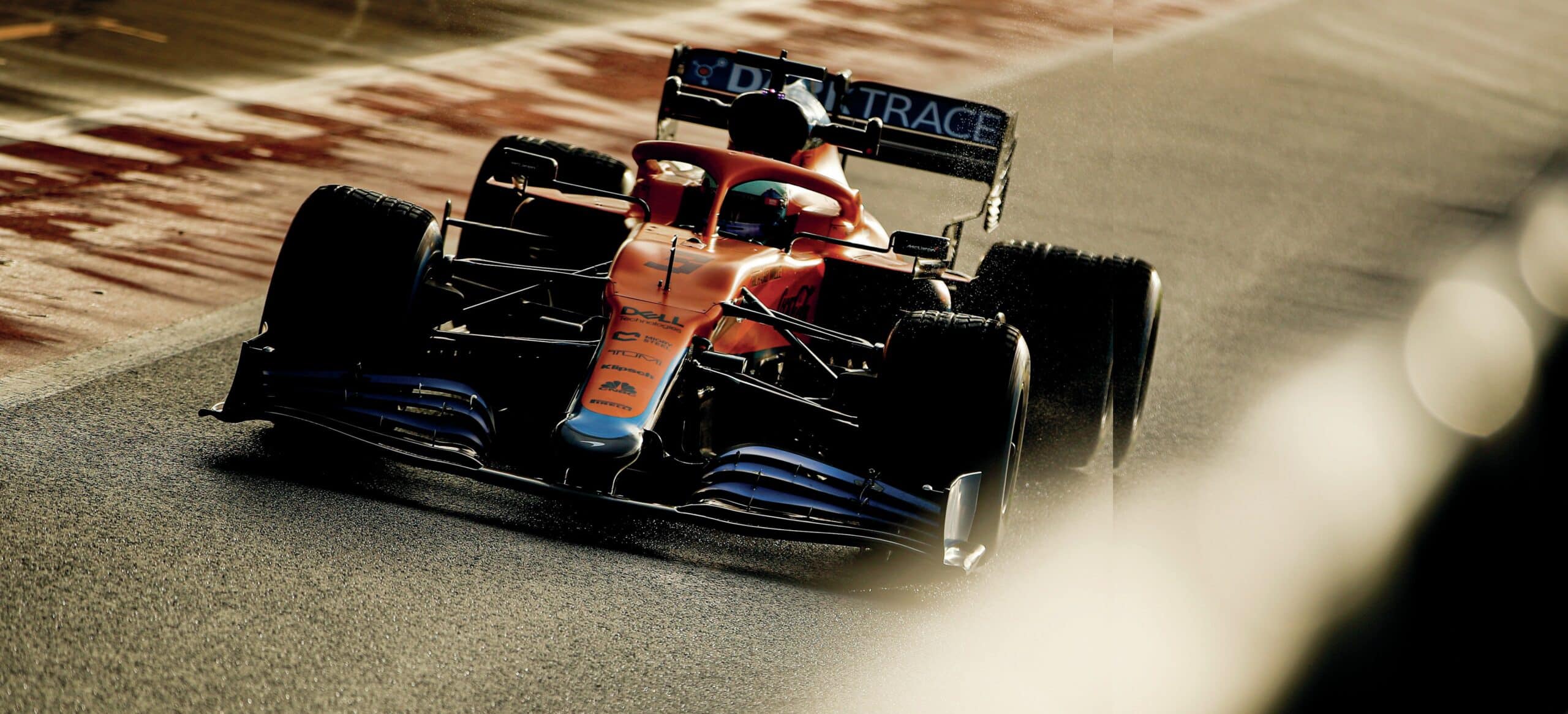
McLaren’s new colours are papaya and blue, but cosmetically the new car has changed little from last year’s MCL35
How is the transition to a budget-capped structure progressing and where will McLaren feel the change the most?
ZB: “We’ve had to reduce our spend, but not drastically. We’ve had to revise our headcount slightly and we’ve had to look at our ways of working. It’s a journey because the cost cap goes down every year for the next two years [It’s capped at £103m this year, reducing to £100m next year and £96m from 2023 onwards]. We have thoughts on what 2022 looks like but we don’t need to implement it yet. We also want to learn a little bit this year because you can get down to the cost cap a couple of different ways. Andreas will make the decision on what is the most efficient, effective performance-oriented way to run at the cap.”
“F1 should not be under any obligation to follow the road car industry”
And you are still convinced it’s the best way of levelling the playing field?
ZB: “Definitely. I would have liked to see the cap a little bit lower, but I’m happy with where it’s at. I don’t know who has the smallest budget these days: Haas, Sauber [Alfa Romeo] or Williams. But their cars look just like the Mercedes, they just go a little bit slower. If you pegged everyone back down to, say, Williams’ current speed, F1 wouldn’t look any different.”
Looking further ahead, beyond 2021, what are the priorities for F1’s new CEO Stefano Domenicali?
ZB: “I think he’s got a bunch of priorities. Obviously implementing the cost cap and making sure that goes as planned, and I’m confident it will. I think North America as a market [is a priority]. Everyone needs to remember [Liberty Media] is a commercial rights holder and so with the cost cap and technical rules in place, it’s about growing the fanbase. And sustainability needs to remain right at the top of the list of where F1 is headed. We need sustainability for the sport, not just for the power units.”
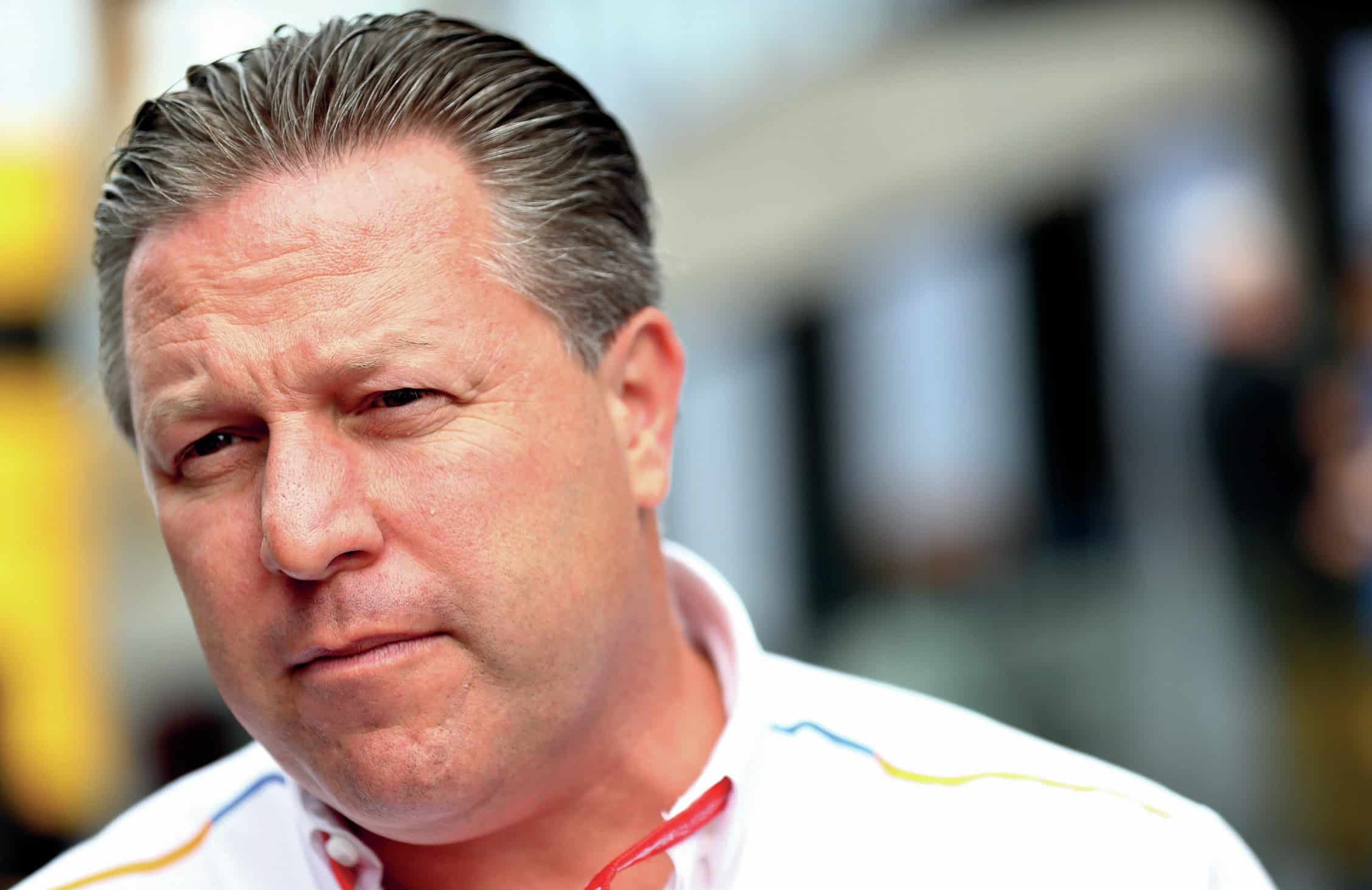
Electric cars? F1 is in the business of entertainment, says Brown. The problem is travel, not the track
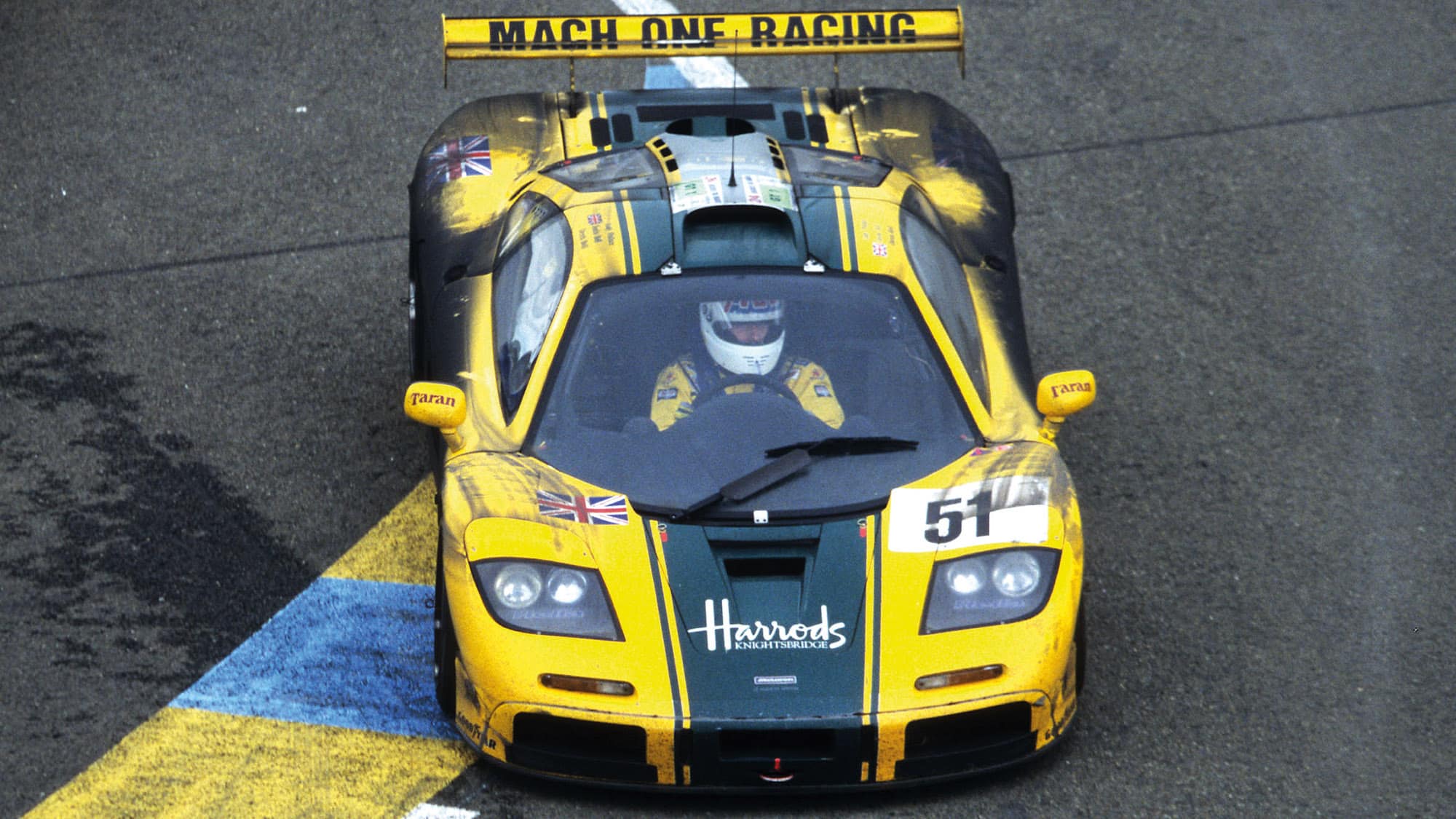
Halcyon days for McLaren at Le Mans in 1995, whose F1 GTR dominated. A return might be on the cards
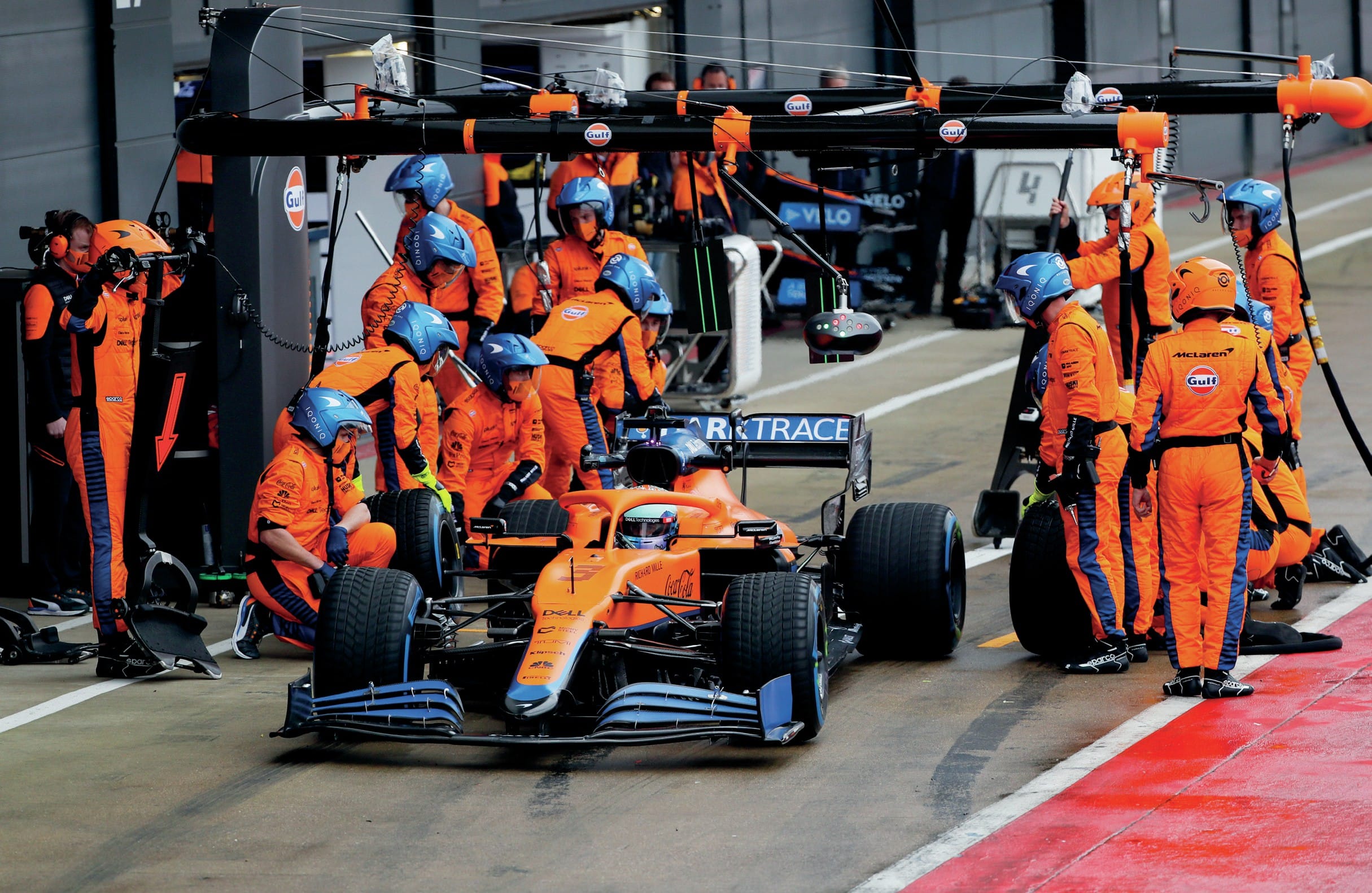
Daniel Ricciardo’s seven previous GP wins bring experience to the McLaren set-up
In terms of North America, what’s your ideal scenario?
ZB: “Two races that rotate between three tracks. I’m a fan of a 20-race calendar with 15 permanent races and maybe 10 that rotate. We reach a point of burn-out with employees, but beyond that the most popular sports – the Olympics, World Cup, NFL [American] football – have some scarcity to them. When you get to 23, 24, 25 races, that’s a lot of frequency and part of what makes grand prix racing so exciting is the exclusivity. In North America, Miami, Las Vegas and New York are your best markets, but they are the hardest races to put around. You’ve got Indianapolis, which was massively popular for F1 until it burnt out and had the tyre fiasco [in 2005]. You have Roger Penske as a promoter now and there’s no one better to have as a business partner. That’s ready to go, plus you can have 250,000 people. Austin has its challenges, but is a fantastic track and Daniel’s favourite. If you could get a race in, say, Miami and then rotate an Austin and an Indianapolis… While Indianapolis isn’t the market of New York or Miami it does fit the F1 brand because it’s the world’s most famous, iconic speedway. While you are pursuing Miami or Vegas, I’d go to Indianapolis right away, then figure out how to do two a year.”
Beyond the 2022 rulebook, are you confident Formula 1 is taking the right direction when the mainstream automotive industry is so focused on EVs? Is that where Formula E comes in?
ZB: “We are interested in Formula E from a sustainability standpoint. I’m personally of the opinion – and everyone has one on this topic – that I don’t think Formula 1 should be under an obligation to follow the road car industry. I know we have OEMs [original equipment manufacturers] involved, but we’re sport and entertainment. What does golf or football have to do with anything? It’s just sport. Just because we use race cars as our ball and bat, I don’t believe that means we have to totally align with the future direction of the road car industry. I think the sport needs to be more sustainable in how it goes about racing, but in reality the carbon footprint we leave behind, the majority is from travelling around the world. The carbon footprint of the actual race cars is miniature. We need to be careful not to be pigeonholed, that F1 must follow the lead of where the automotive industry is going. We’re not exclusively an R&D lab for the automotive industry.”
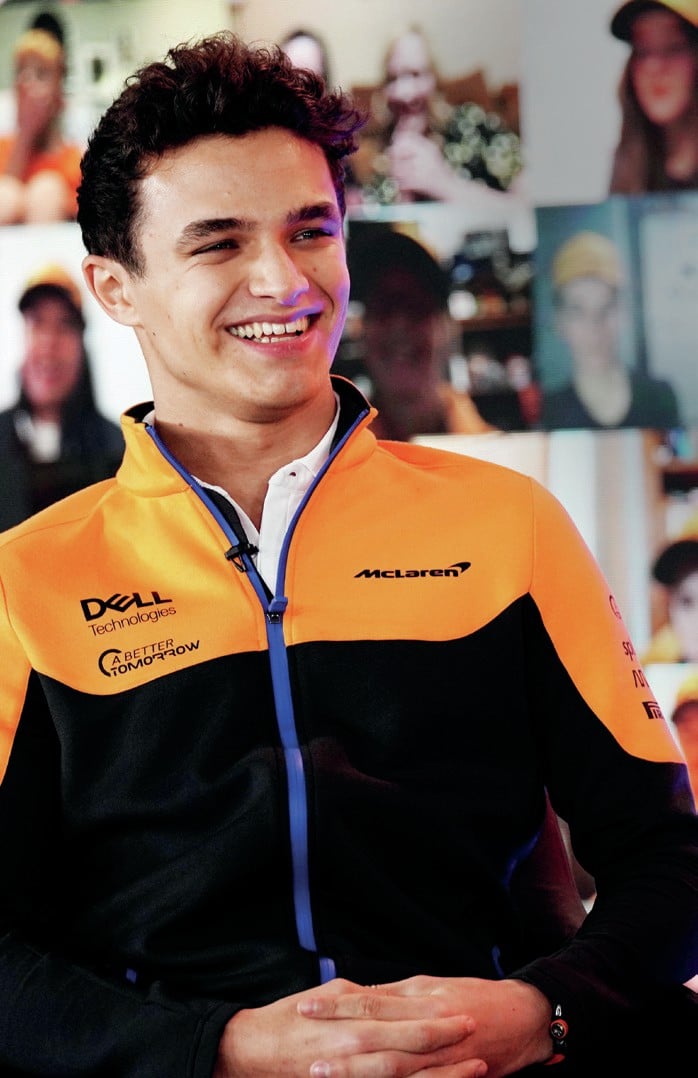
Still just 21, Lando Norris has had 38 GP starts, with a podium in Austria last July
So should an independent engine builder be able to compete with the likes of Mercedes?
ZB: “Yes, definitely. There’s too much politics and relationships [built] around the power unit suppliers. Without naming names, teams that run a certain power unit often have to fall in line [on matters such as the budget cap] with their engine supplier. That’s not right. If you had an independent engine that dissolves some of these alliances a little more it would allow everyone to be increasingly independent, which is healthier for the sport.”
McLaren Automotive builds its own engines in collaboration with Ricardo. How about McLaren building its own Formula 1 engines too?
ZB: “If it was financially viable, it is something we would consider. But the numbers they are spending are madness. Coming back to what Stefano needs to tackle, now he’s got team budget caps in a good place, he’s got to work on the future power unit [from 2025] because no one would come in on today’s spend level. There’s no business model that works for a Cosworth or Ilmor at the current spend levels. He’s got to tackle the future of the power unit, the sustainability within that, the costs within that and come up with a business model that makes sense for an independent to join.”
Away from F1, briefly, what are the chances of a McLaren LMDh or Hypercar racing at Le Mans?
ZB: “Decent. It’s under review and has been for quite some time. We would only do LMDh because LMH doesn’t have a cost control element to it. If we were to do it, LMDh would be how and it’s something we would like to do. Le Mans and sports car racing makes sense for our brand. We had success there before, the shareholders like that form of motor racing. It’s one step at a time. F1 is our number one focus and always will be. Anything we do outside of that has to complement F1, so IndyCar was all about addressing the North American market. I’m a little concerned over the LMH and LMDh performance balancing. That being said, the fact that Porsche and Audi have come in gives us confidence because they know how to win at Le Mans and they’ll make sure there is balance of performance between the two types of cars. It’s an expensive project and it requires a lot of development. With IndyCar it’s a simpler, but not easier, form of racing where you buy the Dallara and have a Chevy in the back. This requires a longer lead time and until we are out of Covid it would be unwise to take a big decision. If we were to enter, it would be 2024 and in order to be ready. I need to make a decision sometime in the middle of this year. We’re active, we’re ready, we just need to see if the stars align and when the dark cloud clears up.”
An independent McLaren returning to winning ways in F1, while competing at the sharp end in Indycars, Formula E and at Le Mans – now wouldn’t that be something? Zak Brown and his team have much to juggle and put in place to achieve just half of it, but it’s a vision that rings a bell. Somewhere up there Bruce McLaren must be smiling.
